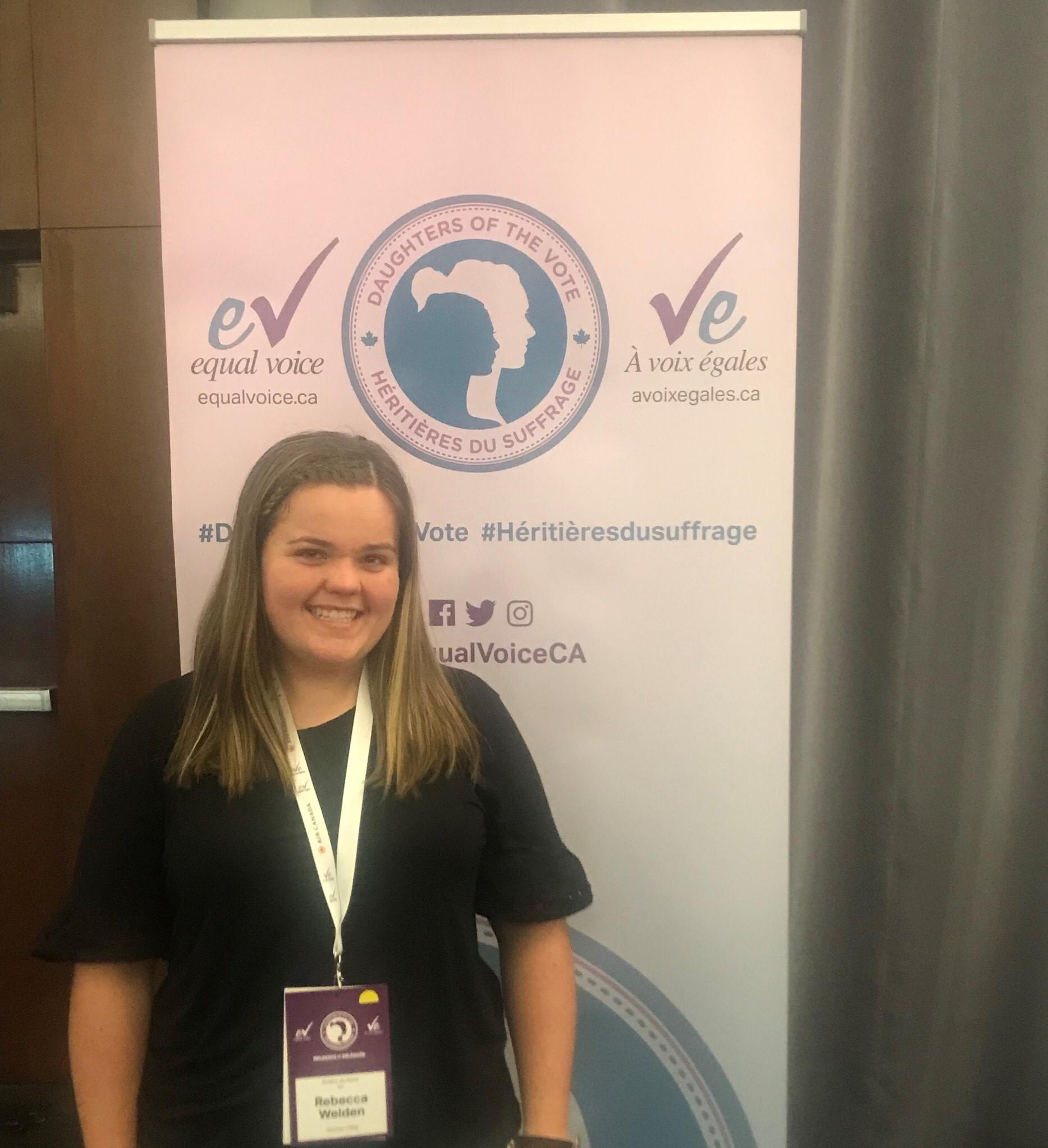During the week of April 1, Rebecca Welden of Grenville met with Justin Trudeau, Andrew Scheer, Jagmeet Singh, Elizabeth May and former Prime Minister Kim Campbell. The John Abbot student was one of 338 young women – one from each federal riding in Canada – selected to participate in the Daughters of the Vote initiative organized by Equal Voice’s political leadership program.
Equal Voice is a bilingual, member-based, multi-partisan group that advocates for equal representation of women in Canada’s elected Parliament, legislatures, municipal and band councils. This was the second Daughters of the Vote program staged, the first being in 2017. The federal government contributed $3.5 million to fund this educational initiative.
The delegates were accommodated at the Delta Hotel in Ottawa, within walking distance of Parliament. They participated in five days of lectures, panels and Q and A sessions with ministers, MPs and civil servants on the world of politics, such as how to maneuver the nomination process and how to handle the media. In a historic moment, they sat in their riding seats in the House of Commons and lobbed questions at Justin Trudeau.
The uphill battle for women in politics
Rebecca has always been interested in politics and as she says, being chosen to be a Daughter of the Vote “looks good on a resume.” As the representative from the Riviere du Nord riding, she learned a lot. “We heard that politics can be really hard for women,” she says.
“Divorce is common among MPs, because when Parliament is in session, you are absent from your spouse and children for five days a week.” Nevertheless, she found the sessions uplifting and noted that the number of women in Parliament rose from 24 percent in the last Parliament to 27 percent in the current one.
She was particularly impressed with the Indigenous women who attended.
“They danced and sang for us and asked some good questions,” she says.
“They walked out when Andrew Scheer addressed the delegates and along with other delegates, turned their back on Trudeau.” Rebecca did not follow suit because, “I get where they’re coming from, but you don’t just walk out if you don’t like someone,” she says. She noted that she thought Indigenous issues could be a major factor in the upcoming election.
The Trudeau session was the most dramatic in the five days, as he had just ejected Jody Wilson Raybould and Jane Philpott out of caucus. “We saw Ms. Raybould cross the floor to the Opposition benches,” she recalls.

Mulling over choices for the future
Rebecca is unsure if she wants to enter politics eventually. She is headed to McGill in September to do a bachelor’s degree in Commerce and is thinking of studying law after that. But she received plenty of encouragement to consider a political career thanks to the wide range of women she met during the five-day program – and dinner, where the group was addressed by Lisa MacLeod and Lisa Raitt as well as a Q and A session with Maryam Monsef. Kim Campbell told the women she wanted to live long enough to see the first female elected Prime Minister in Canada (Campbell took over as Prime Minister from Brian Mulroney), while Elizabeth May claimed she would accomplish that.


